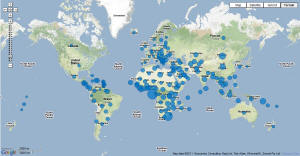| As of October 2025, the World Economic Outlook database and supporting documents will be accessible through the IMF Data portal. |

WEO Update, July 09, 2015
For the latest GDP data for the following countries please check the "Projected % Change" table in the left column of the individual country pages:






